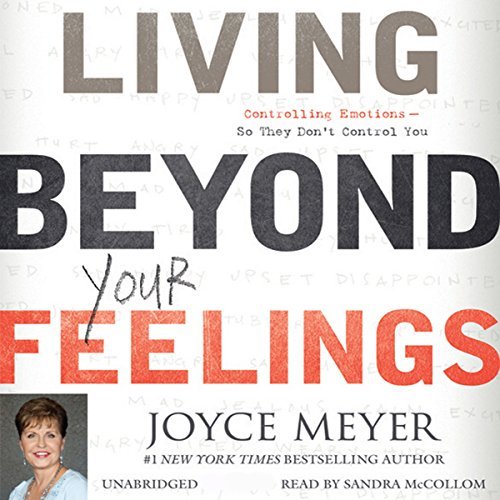Have you ever noticed how often we say “I feel” daily? It’s a phrase that effortlessly rolls off our tongues, showing how connected our emotions are to our everyday experiences. Our feelings guide us through life’s ups and downs, helping us make decisions and navigate our relationships. But have you ever thought about why these feelings matter so much? Let’s dive into the essence of our emotions and how they intersect with our Christian journey.

Personal Journey: The Compulsion to Be Heard
Proverbs 29:11 (Hover over or tap the Bible links to preview.)
11 “Fools vent their anger, but the wise quietly hold it back.”
Growing up, I always felt an intense need to share my emotions, regardless of the time, place, or impact it had on others (Eve in me*).
My feelings demanded immediate expression, often without considering the consequences (Eve in me*). This compulsion to be heard overshadowed empathy and discretion, hindering my relationships and personal growth. I have lost business relationships and personal friendships due to the lack of restraint in expressing my emotions.
One particular circumstance stands out: I had a close friend named Liza. I had been friends with her for a long time and always tried to be kind and gracious towards her. Whenever Liza said or did something that hurt me, I would keep quiet and never speak up about my feelings. One day, something changed. Out of the blue, Liza told me how I had unknowingly offended her. As Liza expressed her hurt feelings, something snapped inside me. All the suppressed emotions I had held inside for so long started overflowing.

At that moment, I lost control and began to unleash my pent-up frustration and anger. I started to curse and yell at Liza, saying things I never thought I would say. Satan had seized the opportunity to deceive me; he whispered lies into my ear just as he did Eve in the Garden of Eden, fueling my anger and frustration. Satan manipulated my emotions, clouding my judgment and preventing me from hearing Liza’s perspective. I was shocked by my behavior. I had worked so hard to be understanding and patient. Yet, in that moment of compulsion, I had become the person I had fought against, escalating the situation beyond repair. I have since discovered a better way to handle not only communicating my emotions but handling how I process my emotions in general to avoid the trickery of satan.
Understanding the Need to Express Emotions
Psalm 62:8
8 “O my people, trust in him at all times. Pour out your heart to him, for God is our refuge.”
As human beings, we are wired to experience a wide range of emotions. God, in His infinite wisdom, created us with the ability to feel deeply and express ourselves. “Why is it so important to share our emotions with others?”
- Validation and Understanding: Sharing our feelings with others can provide a sense of validation and understanding. We seek comfort in knowing someone else acknowledges and empathizes with our emotions.
- Connection and Relatability: Expressing our emotions helps us forge deeper connections with others. It allows us to share our experiences and find common ground, fostering empathy and support within our relationships.
- Emotional Release: Sharing our emotions can serve as a healthy outlet for release. By expressing our feelings, we can alleviate emotional burdens and prevent them from building up within us.
However, expressing emotions without thought can hinder our personal growth and strain relationships. As with my friend Liza, it may lead to misunderstandings, hurt feelings, and repeating negative patterns.
This scripture, Psalm 62:8, highlights the need to express our emotions to God. It encourages us to trust Him and pour our hearts before Him, recognizing Him as our refuge. It reminds us that God is always available to listen to our deepest emotions and concerns, providing comfort and solace in times of need.
The Challenge of Letting Go: Why It’s Difficult

Philippians 3:13-14
13 “No, dear brothers and sisters, I have not achieved it, but I focus on this one thing: Forgetting the past and looking forward to what lies ahead,
14 I press on to reach the end of the race and receive the heavenly prize for which God, through Christ Jesus, is calling us.”
Letting go of emotions can be challenging but essential to emotional well-being and spiritual growth. Understanding why we can’t let it go helps us navigate this difficulty.
- Fear of Invalidating Our Feelings: We may hesitate to let go because we fear that it invalidates our emotions or suggests that they are unimportant. We must remember that letting go does not diminish the significance of our feelings; rather, it frees us from being consumed by negative emotions.
- Holding Onto Control: Sometimes, we cling to emotions or situations because we believe it gives us a sense of control. We mistakenly assume that holding onto our feelings can influence outcomes or protect ourselves from further harm.
- Unresolved Pain and Healing: Sometimes, we struggle to let go because deep wounds or unresolved pain reside within us. Healing takes time, and addressing the root causes of our emotions is essential before we can release them fully.
This scripture, Philippians 3:13-14 emphasizes the challenge of letting go by urging us to forget the past and fix our gaze on the future. It encourages us to persevere and continue moving forward, striving towards the ultimate goal of receiving the heavenly prize that God has called us to through Jesus Christ.
Finding Balance: Expressing Emotions with Wisdom and Grace


Matthew 11:28-30
28 “Then Jesus said, ‘Come to me, all of you who are weary and carry heavy burdens, and I will give you rest.
29 Take my yoke upon you. Let me teach you because I am humble and gentle at heart, and you will find rest for your souls.
30 For my yoke is easy to bear, and the burden I give you is light.'”
To achieve a healthy balance between expressing emotions and exercising wisdom, we can follow these practical steps:
Exercising Wisdom:
- Seek God’s Guidance: Prayer invites God into our emotional journey. We understand when and how to express our feelings by seeking His wisdom.
2. Trust in God’s Sovereignty: Recognize that God controls every situation. Trusting in His sovereignty allows us to surrender our emotions and outcomes to Him, finding peace in His perfect plan.
3. Forgiveness and Letting Go: Embrace the power of forgiveness. As God forgives us, we must extend forgiveness to others and ourselves. Letting go of past hurts liberates us from emotional bondage.
Proverbs 15:28
28 “The heart of the godly thinks carefully before speaking; the mouth of the wicked overflows with evil words.”
Expressing Emotion:
- Reflect on Intentions: We must examine our motives before sharing our emotions. Are we seeking resolution, understanding, or simply venting? Honest self-reflection helps us discern the most appropriate way to communicate our feelings.
2. Timing and Place: Understanding the significance of timing and choosing an appropriate setting for emotional conversations is crucial. Waiting for the right moment can prevent misunderstandings and ensure our words are heard openly.
3. Gentle and Constructive Communication: The Bible encourages us to speak the truth in love (Ephesians 4:15). When expressing emotions, let us strive to do so with gentleness, kindness, and a desire for reconciliation rather than causing harm.
Conclusion
Proverbs 16:24
“Kind words are like honey—sweet to the soul and healthy for the body.”

In our faith journey, we navigate emotions with wisdom and discernment. We can cultivate healthy relationships and foster emotional well-being by placing our faith in God and aligning our actions with His Word. Remember, it is not about suppressing our feelings but expressing them in a manner that honors God and respects others. Let us embrace “FAITH IN FEELINGS,” finding harmony between our emotions and the divine wisdom that guides us.
How has the concept of faith in feelings resonated with you on your spiritual journey? Share a specific experience or insight that has shaped your understanding of the relationship between faith and emotions.
Signed, Eve in Me is still EveIn Me.
*“Eve in me” is a phrase used to highlight our sinful natures and the ways that are in us that are not of GOD, while “EveIn Me” is a phrase that represents the grace of God that counts us as righteous despite our past, because we have been forgiven and we now walk in Truth.
If the “Faith in Feelings” blog deeply resonates with you and you’re eager to grow on your spiritual journey, I want to share a life-changing book that’s been helping me tremendously: “Living Beyond Your Feelings” by Joyce Meyer. Click the link to embark on a transformative journey of self-discovery as Meyer explores the connection between faith, emotions, and spiritual growth. https://amzn.to/3Q29GuH





2 Responses
Definitely need this! Thank you woman of God!
Well said, love this! Proverbs has so many great life lessons in it. I believe what helps control those annoying feelings is like you said talking to God about it, waiting to react since our emotions are so fickle & not taking everything so personal. ❤️🙏